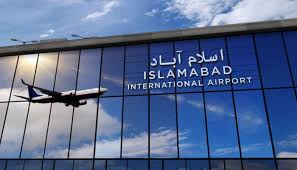In recent weeks, we have seen troubling rhetoric from certain quarters of PTI urging overseas Pakistanis to reconsider their remittances to Pakistan. This call for disobedience is far from a peaceful protest; rather, it represents a potential criminal offense against a nation that is already grappling with significant economic challenges.
It is crucial to recognize that Pakistani expatriates send money home to support their families, and this practice is vital for the well-being of countless households across the country. The notion that people would heed such a reckless and irresponsible call is simply absurd.
The economic ties and responsibilities of overseas Pakistanis towards their families are deeply ingrained, and the vast majority will continue to send remittances irrespective of political pressures.
To place the economic interests of a nation at risk under the guise of political activism crosses a line. It is not mere dissent; it is an act of economic terrorism.
Any individual or group attempting to undermine the financial stability of Pakistan should be held accountable under the full extent of the law.
As citizens, it is our responsibility to foster dialogue that supports economic stability rather than threatens it. Encouraging overseas Pakistanis to withdraw their financial support not only jeopardizes families but also endangers the very fabric of our economy.
In these challenging times, we must prioritize unity and support for our nation’s growth, rather than succumbing to divisive and dangerous ideologies. We must stand together against any forces that seek to exploit our economic vulnerabilities for their own ends.
The Pakistan Tehreek-e-Insaf (PTI) party finds itself at a significant juncture in its journey. The leadership faces a critical decision: should it position itself in opposition to the current government, or it has decided confront the underlying structures of the state itself?
This question is not just a matter of political strategy; it speaks to the very essence of governance, national unity, and the welfare of the Pakistani people. As political dynamics shift rapidly, PTI must carefully evaluate its approach. Historically, parties have defined their existence in opposition to governmental policies, advocating for reforms and engaging in healthy political discourse. However, what happens when the lines blur between the government and the state?
The distinction is crucial, as targeting the fundamental economic structures of Pakistan can lead to perceptions of treachery beyond mere political rivalry. In recent times, actions against the economic lifelines of the country have sparked outrage among the populace.
Economic stability is vital for national progress, and anyone undermining it must be held accountable.
Inflicting harm on this foundation is akin to waging an economic war against Pakistan, an act that deserves scrutiny beyond partisan politics. For PTI, this raises pressing concerns: how can the party justify its position when the effects of its actions resonate through the lives of ordinary citizens?
The ongoing economic challenges faced by Pakistan are severe. Unemployment, inflation, and rising fiscal deficits threaten the country’s stability and must be addressed sagaciously rather than through divisive political agendas. PTI must rise above the fray of partisan politics and engage in a dialogue that prioritizes the collective well-being of the nation.
Thus, PTI stands at a crossroad. It must remember that its actions hold weight far beyond political victories. The economic lifeblood of Pakistan is not merely a political issue; it is a matter of national identity and resilience.








